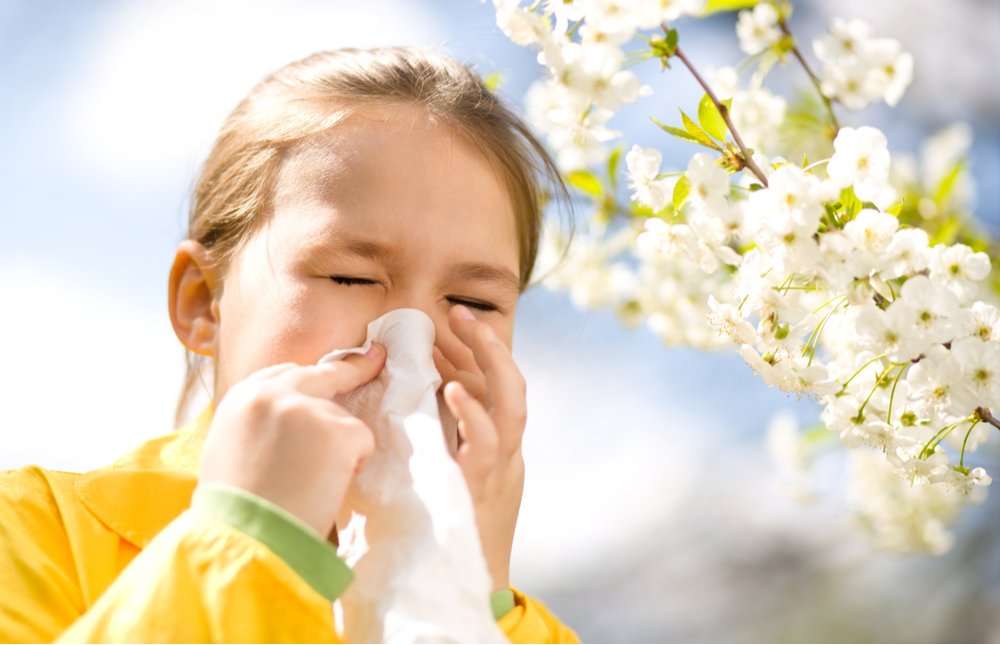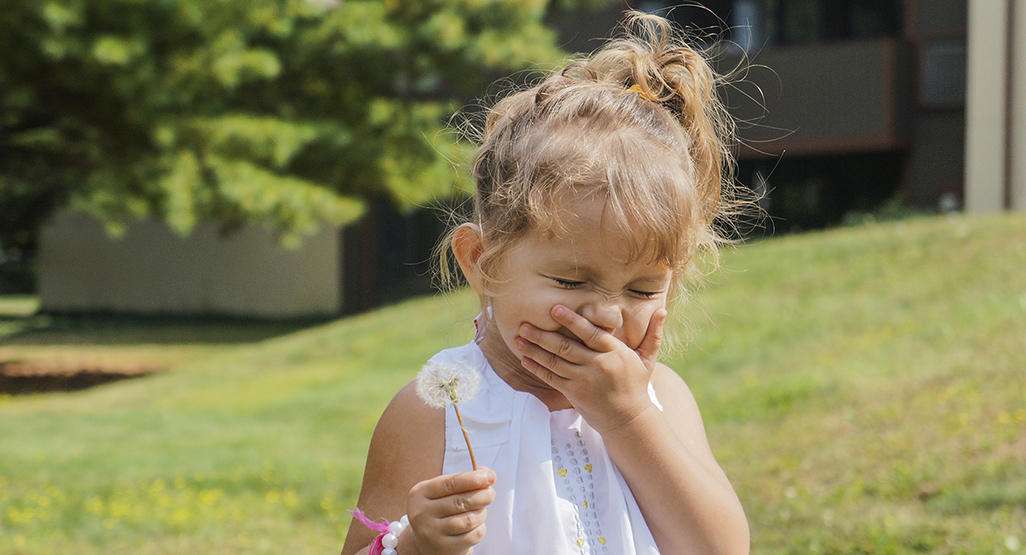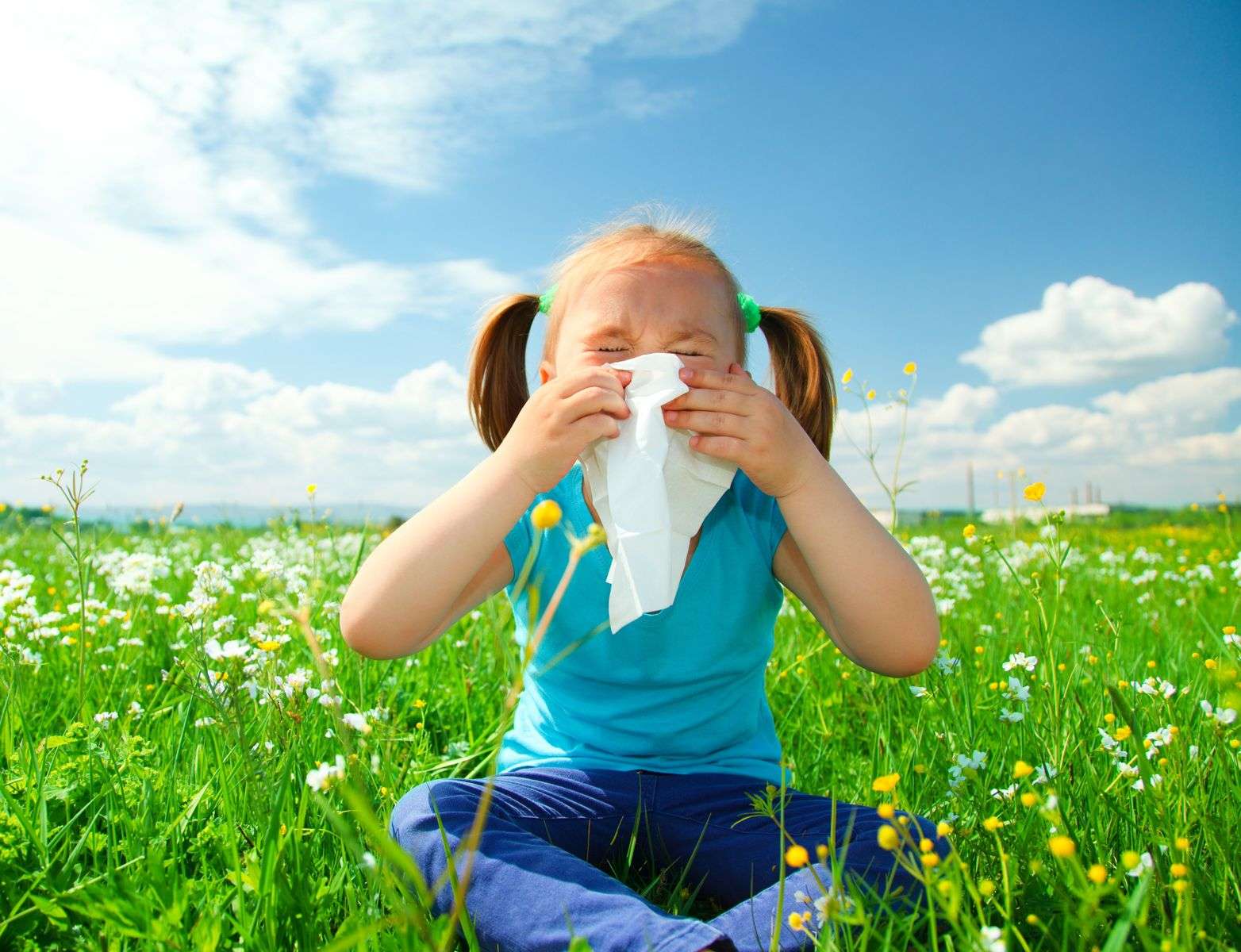When Should A Child Be Tested For Allergies
Before going into the best age to begin allergy shots, it’s important to talk about when to have your child tested for allergies, as this step comes first. Parents often believe that allergy testing for children has to wait until a child is a certain age, for example, school age. This is not true, and allergy testing can be done for children even one month of age. The best time to test is when you believe knowing the source of your child’s symptoms outweighs the discomfort of the procedure, and this age will be different for every child. Your best bet is to talk to your pediatrician or allergist in order to have her help you weigh these factors.
Testing Baby For Seasonal Allergies
It’s unusual for a baby to be tested for pollen allergies, but an allergist can help decide if a blood test or a skin prick test is necessary. A blood test involves withdrawing blood and measuring antibody levels toward certain allergens to see if the levels are high.
A skin prick test involves a needle or probe coated with a drop of solution containing a certain allergen. The needle is then used to gently prick a baby’s arm or back so the substance can enter under the skin’s surface. The allergist will then wait to observe if there is a reaction to the allergen, such as the appearance of a hive or rash. “The skin prick tests can determine whether the problem is allergens, caused by pollen, or indoor allergens, caused by pet dander, dust mites, and cockroaches,” says David Stukus, M.D., assistant professor of pediatrics at Nationwide Children’s Hospital in Columbus, Ohio.
Seasonal Allergies: The Tip Of The Iceberg
Little is still known about the causes of allergies, which are many. Atopy is a hereditary predisposition to allergies that afflict many children. Children with this hypersensitivity can suffer from different allergies or illnesses at various stages in their development. In this context, it is generally recognized that seasonal allergies often go hand in hand with other early childhood diseases, such as:
- food allergies
- eczema
- asthma.
The first signs of allergies are often food allergies and eczema that can be seen on nursing infants. A little later in infancy, symptoms of allergic rhinitis can develop.
If your child suffers from asthma or eczema, the symptoms might temporarily worsen during the seasonal allergy period. Sometimes it may be necessary to increase medication when this happens: the child will have to use an asthma inhaler more often, or apply more eczema cream or unguent.
Also Check: Can You Develop Allergies To Peanuts Later In Life
How Do I Treat My Childs Allergy Symptoms At Home
There are many over the counter options available to treat allergy symptoms. See tables below for options. There are also some non-medicinal tips to help control allergy symptoms at home. Keep windows closed, especially during days of high pollen counts. Wash hands and face when coming in from outside. Wear sunglasses when outside. Take shoes off when entering the home. Frequent and smart dusting from top to bottom in a way that does not spread dust to areas just cleaned. If you have central air or heating, remember to change your air filters regularly. Use allergy proof mattresses and pillow covers. Try cool compresses to help with puffy, itchy eyes.
Can I Give My Child Allergy Medicines

Over-the-counter treatments such as saline sprays, nasal steroid sprays and antihistamines can work for children, but Dr. Hong recommends that parents talk to their pediatrician about the different medications and proper dosing. Its also important to be on the lookout for how allergy medications make children feel.
Monitor whether medications make them sleepy, Dr. Hong suggests. Some liquids or pills can cause sleepiness, so you want to make sure that you either dose them at night or choose one thats a little bit better for your child during the day so theyre not drowsy.
If your child is having allergy symptoms all of the time, Dr. Hong advises being proactive and seeking medical treatment so they can focus on school instead of their runny nose and sneezing all day long.
Don’t Miss: Can Food Allergies Come On Suddenly
What Are The Kinds Of Allergies
Common types of allergies include:
Airborne Allergies
- insect sting allergy
- medicines, such as antibiotics and some over-the-counter medicines
- chemicals. Some cosmetics or laundry detergents can make people break out in hives. Usually, this is because someone has a reaction to the chemicals in these products. Dyes, household cleaners, and pesticides also can cause allergic reactions in some people.
What Time Of Year Is It
In the spring, pollens from trees and flowers are everywhere. If your child is sneezing, wheezing and dripping, blame the pollens.
In the summer, mold and insect bites can also trigger allergic reactions. The hot months are also marked by âfood pollen syndrome.â Thatâs when fruits and vegetables carry allergens that can set off symptoms in your mouth.
Also, if your child is having symptoms at different times of the day, “itâs consistent with allergies,â McMorris says. âI always try to relate it to what kids are doing.â
Say your little one wakes up congested, for instance — they may be reacting to dust mites, dander from the family dog or cat, or indoor molds. If they donât want to eat for a few hours after waking up, it may be allergy-related nasal drainage dampening their appetite. If the itchy eyes and sneeziness tend to come on when they are at soccer practice in the morning, keep in mind that that’s when plants tend to pollinate.
When itâs winter time and your childâs eyes are fine, though, it’s more likely that a virus is to blame for their symptoms, McMorris says. Still, youâll need to ask your pediatrician to find out for sure. You may also need a referral to a doctor who specializes in allergies.
Don’t Miss: Can Seasonal Allergies Cause Swollen Lymph Nodes In Neck
Benefits Of Allergy Shots For Children
If your child has allergies, it is important that you seek the consultation of a qualified allergist who is experienced in treating children with allergies. As noted earlier, in addition to reducing your child’s symptoms, allergy shots may reduce the risk of developing allergic asthma . Allergy shots may also reduce the risk of developing the most severe consequence of allergies: anaphylaxis.
Treating Common Colds In Children
- Use saline solution in the nose to loosen congestion and help children blow their noses. Or, suck out the congestion with a bulb syringe.
- Try certain home remedies to help relieve your child’s symptoms. For children over age 1 year, a spoonful of honey by mouth may help soothe a sore throat.
- Use acetaminophen or ibuprofen, as prescribed by your doctor, to treat aches, pain and fever.
- For children over age 2 years, you can use mentholated ointments on top of the chest to soothe and calm coughs, especially nighttime coughs.
- For children over age 6 years, you can use a topical decongestant such as nasal spray to help relieve nasal congestion. If used, use at night for no more than 3 days in a row.
- Learn when to consult your physician if your young baby has common cold symptoms.
Keep in mind that oral cough and cold medications are not recommended for children under the age of 6 years. “Typically, I try to avoid oral cough and cold medications for children of any age,” says Dr. Lee. “They are not effective and can have potential side effects, such as elevated blood pressure.”
If your child’s cold and allergy symptoms last more than two weeks, consult your doctor. If you are concerned your childs symptoms are COVID-19, you should also contact your childs pediatrician. Learn more about allergies vs. COVID-19.
Recommended Reading: Can Allergies Cause Fever And Chills
How Can You Minimize Exposure To Seasonal Allergy Triggers
Even when pollen seems to be blanketing everything in its path, there are steps you can take to prevent allergies from acting up:
- Have your child wash their hands and face as soon as they come in from playing outside so they dont rub pollen in their eyes and nose. Better yet, rinse them off in the shower.
- Check the forecast for pollen levels, and limit outdoor activities when pollen counts are at their highest.
- Dry laundry in the dryer. Since pollen can coat clothing, avoid hanging laundry outside to dry.
- Have your child take their bath at bedtime. This will help with nighttime allergy problems.
- Keep windows in your home and car closed and use air conditioning to filter the air. Make sure the air conditioner is on re-circulating mode.
What Causes Seasonal Allergies In Babies And Toddlers
Seasonal allergy symptoms usually occur during spring, summer and fall. Depending on where you live, the seasons and specific plants causing allergies vary. Unfortunately, no region of the United States is completely untouched by allergy triggers.
When your little one inhales one of the following seasonal allergens, her immune system churns out antibodies that jumpstart the release of a protein called histamine, which causes allergy symptoms:
- Spring allergies : Tree pollen. The most common culptrits cedar, birch, oak, maple and pine are found in most parts of the U.S. The farther south you live, the earlier the season usually starts.
- Late spring to summer allergies : Grass pollen. Grasses, including Bermuda, orchard, brome, rye and Timothy, are more likely to produce symptoms in late spring and early summer in the northern states, but are always problematic in the South, since grasses there pollinate year-round.
- Late summer to fall allergies : Weed pollen . Ragweed grows in nearly every climate and is the biggest source of hay fever symptoms.
Also Check: How To Treat Severe Allergies
When Should I Give My Child Allergy Medications
Antihistamines should be given when kids have symptoms. Be sure to carefully read the label, follow dosing instructions, and check in with your pediatrician to discuss what works best for your family.
While seasonal allergies are no walk in the park, they can be safely and effectively managed. Avoiding exposure, reducing continued exposure, and choosing a safe and effective allergy medication can all help get your child back to their old self in no time.
You can learn more about identifying and taking care of your childs allergies with our quick guide: 5 Allergy Indicators that Every Parent Should Know.
Ali Wilkinson is a lawyer and writer based in Portland, Oregon. She has been practicing law for over 15 years, working with clients across a wide range of specialties.
Who Gets Seasonal Allergies

Any child can develop seasonal allergies, but the risk is highest in those children with one or both parents who also have seasonal allergies, as allergies tend to run in families. It most commonly presents in children ages 2 and up and is rare in children < 6-month-old. Children usually have to have lived through one year of seasonal changes to develop sensitivities to the aforementioned allergies.
You May Like: How To Cure Skin Allergy At Home
What Should I Do If My Child Suffers From An Allergy
The first precautionary step is to avoid the allergen in question. Below are a few tips that will help reduce exposure to pollens:
- Avoid family outings on very windy days, as the airborne pollen concentration will be higher.
- Take advantage of rainy days to play outside, get out your rubber boots! Pollen normally stays on the ground when it rains.
- Try to enjoy outdoor activities early in the morning or late in the evening .
- Keep doors and windows closed to stop pollen from entering your home and coming into contact with your child.
- While driving, roll up the windows and turn on the air conditioning.
- After outdoor activities, have your child take a bath or shower to remove any pollen on the skin, and then get dressed again with clean clothing.
- Dont dry clothes outside on the clothesline, as pollen may have settled on them.
- Have your children wash their hands more often, especially when coming in from outdoors.
- When planning an outdoor activity, find out about the pollen count for that day. Choose times when the pollen count is lower.
Diagnosis And Treatment Of Eye Allergies In Kids
If your child has never experienced eye allergies before, talk with their pediatrician about their symptoms. Eye allergies are diagnosed based on your child’s symptoms. Allergy tests are rarely needed.
After eye allergies are diagnosed, your child’s doctor will recommend management. Follow-up care will only be necessary if the treatment is not working.
In most cases, eye allergies are treated using over-the-counter drugs and lifestyle adjustments to limit exposure to allergens.
For severe allergies, your child’s doctor might recommend prescription medications or an allergy shot.
Also Check: How Can Chemists Help Prevent Allergies
How Can You Tell If Your Child Is Mature Enough For Allergy Shots
Some allergists will recommend giving a child a shot of saline to see how well he tolerates the process before committing the child to allergy shots. Another clue as to whether a child will tolerate allergy shots is how well he does with routine vaccines and allergy testing. If the child cries or screams during immunizations and allergy testing, he will probably not do well with allergy shots.
Another way to assess your child’s readiness is to talk to him about how allergy shots work Having an idea about the “whys” behind shots may help some children be ready earlier than if they did not have an understanding of the reason behind the shots.
Treating Childrens Allergies With Over
If youre wondering what to give kids with seasonal allergies, over-the-counter antihistamines have been clinically shown to reduce symptoms in kids with seasonal allergies.14
Why do antihistamines reduce the symptoms of seasonal allergies? When your child experiences persistent allergy symptoms like a runny nose, its actually the bodys way of responding to what it thinks is an invader, in the same way it would react to a virus.15Once the body identifies an allergen as a potential threat, the immune system lights up, sending out antibodies, which in turn cause cells to release powerful chemicals including histamines.16These histamines are responsible for the uncomfortable symptoms that go hand in hand with seasonal allergies. Since histamines cause allergy symptoms, your child can get relief by taking an allergy medication that blocks them.
Read Also: Is A Humidifier Good For Allergies
Is There A Fever
Allergies can bring on sneezing, watery eyes, itchiness of the eyes, nose, and roof of the mouth, and sometimes a sore throat.
But âyou donât get fever with allergies,â even though they’re often called âhay fever,â says Marc McMorris, MD. He’s a pediatric allergist and immunologist with C.S. Mott Childrenâs Hospital.
âUsually, colds will come on gradually and you get runny nose, itchy eyes, and a low-grade fever .â
How Are Seasonal Allergies Treated
There are many ways to treat seasonal allergies, depending on how bothersome the symptoms are. An important part of treatment is knowing what someone is allergic to. Some kids can get relief by reducing or eliminating exposure to the allergens that bother them.
If certain seasons cause symptoms, keep the windows closed, use air conditioning instead of fresh air when possible, and stay indoors when pollen counts are high. It’s also a good idea for kids with seasonal allergies to wash their hands or shower and change clothes after playing outside.
If reducing exposure isn’t possible or doesn’t help, doctors may recommend medicines for allergy symptoms. These can include oral, nasal, and ocular antihistamines and nasal steroid sprays. If these don’t help or a child has to take multiple medicines to ease symptoms, the doctor may recommend seeing an allergist. The allergist can decide whether allergy shots could help.
Recommended Reading: How To Know If You Have A Food Allergy
What Home Remedies Can You Use For Seasonal Allergies In Kids
Bathing to remove pollen, keeping windows closed during peak pollen times, and using over-the-counter medications and remedies may help your child manage their seasonal allergies. In addition, older kids may find relief from a saline sinus rinse.
Keep in mind that not all OTC medications and natural remedies are appropriate for kids of all ages. Be sure to read labels carefully and talk to your childs doctor before trying an OTC medication or remedy.
Symptoms Of Nasal Allergies

- Clear nasal discharge with sneezing, sniffing, and itching of nose
- Eye allergies also can occur
- Ear and sinus congestion or fullness can occur
- Throat can also feel scratchy or have a tickly feeling at times
- Itchy ear canals, itchy skin or hoarse voice sometimes also occur
- Symptoms happen during pollen season
- Same symptoms during the same month of the last year
- Past diagnosis by a doctor is helpful
- No fever
Also Check: What Does A Dehumidifier Do For Allergies
What Are Colds And Allergies
The common cold is a virus of the upper respiratory system which causes symptoms such as a runny nose, cough, sore throat, and general low-level feelings of unwellness. Typically, toddlers with a cold start to feel better within a couple of weeks.
Allergies are caused when your toddlers immune system overreacts to usually harmless elements, such as pollen, pet dander, mold, and insect bites. Allergy symptoms, such as coughing, sneezing, and a runny nose, range from mild to life-threatening. Allergy symptoms usually continue until you remove the allergen or receive treatment.

